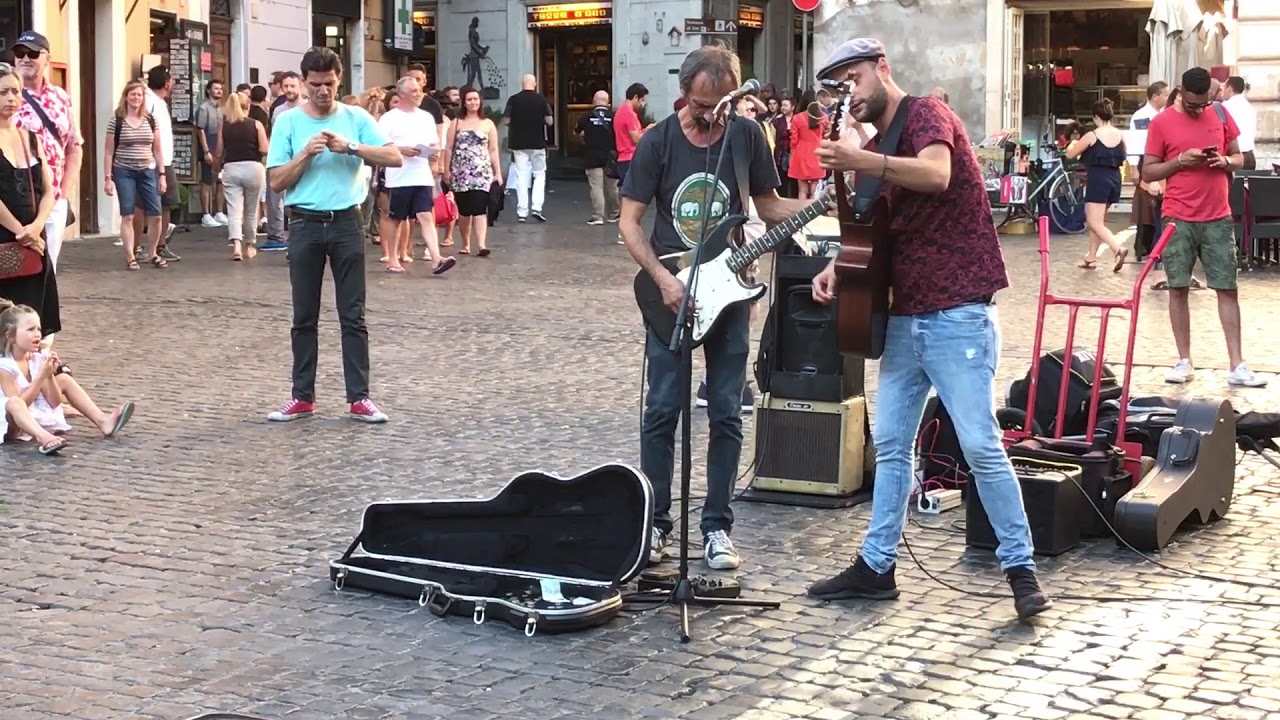
Street Musicians
There are many ways to share music to the world, and while there are now digital connections that makes this a lot easier, there are still artists and musicians who enjoy the most simple experience of all, just go to the street and play.
While most of street performers receive some money for their talents, it’s clear that their main goal is not to make money, is to share their art freely, in this case, music. There is something nearly magical about the urban music surrounding a fast and very busy world that these musicians make possible and it’s bee like this for quite a while.
The term used for these performers was busking, which was first used around 1860. It comes from the Spanish word “buscar” this means “to seek”.
However there have been many forms of performers such as troubadours in medieval times and Japanese Chindonya.
Today street musicians are still very much active, but in a very different world.
A Loud Stage

In an interview with Roselinde from Globonaut, street musician Stefano Rossa talks about his experience playing in a difficult stage.
Urban sounds obviously make it a bit harder for me to play. Silence or quietness are essential to the good result of the performance. The only sound that doesn’t annoy me at all is the laughter or clapping of a kid.
He also talks about things he has learned during his time playing on the streets.
I’ve always been very shy and even if music helped me a lot throughout all these years, I still feel that little feeling of awkwardness while I’m playing in front of someone else. Actually, I think it’s pretty much the same for every musician on Earth, but everyone lives this in his own way. Being a street musician taught me to be tougher but, on the other hand, also calmer. I simply think that I’m doing what I love the most and in my own way. What people think doesn’t have to affect me too much, especially if somebody thinks or acts negatively. I give a lot of respect to the people who chose to do what they love no matter what people say or who society doesn’t want you to be.

In other words it can be a transformative experience in the sense that it’s a very easy and straightforward way to engage with an audience and it helps deal with external sound, focus and all sorts of opinions.
Freedom and Music
On the other side of things there is also Estas Tonne, who is another street/traveler musician but has gained a wider audience.
In an interview for Turkish journalist Ilgaz Yalçin Fakioğlu he said:
For many years, I’ve traveled without agenda or a schedule exploring different countries and cultures, visiting those places I’ve been receiving an inner calling to go. Now it has changed for the organized concerts firstly and festivals. When an invitation comes, our team reviews it from all kinds of perspectives, though it is impossible to answer all of the calls. Besides, no matter how much I love to share this music, I cherish my solitude times and so-called creative madness when I can just be…observing each coming day…
There is a sort of freedom that these musicians share and it shows through their compositions and even through the instruments they choose, like Damat Drummer who says:
I play drums since i was 9 and i still do, but as i previously stated i believe that each object can produce its own sound and that’s why, from my point of view, every object is a musical instrument.
For some, it may be seen as if they are wasting their potential but the truth is that these are just different approaches to music and every single one of them is as valuable and artistic.
Studio Helper Tip: Did you know that you can turn double booking on or off? This is ideal when you have several teachers teaching at the same time but different locations. It’s found in the settings tab and then studio settings.
